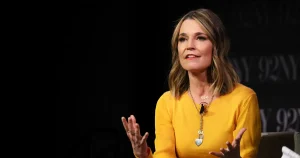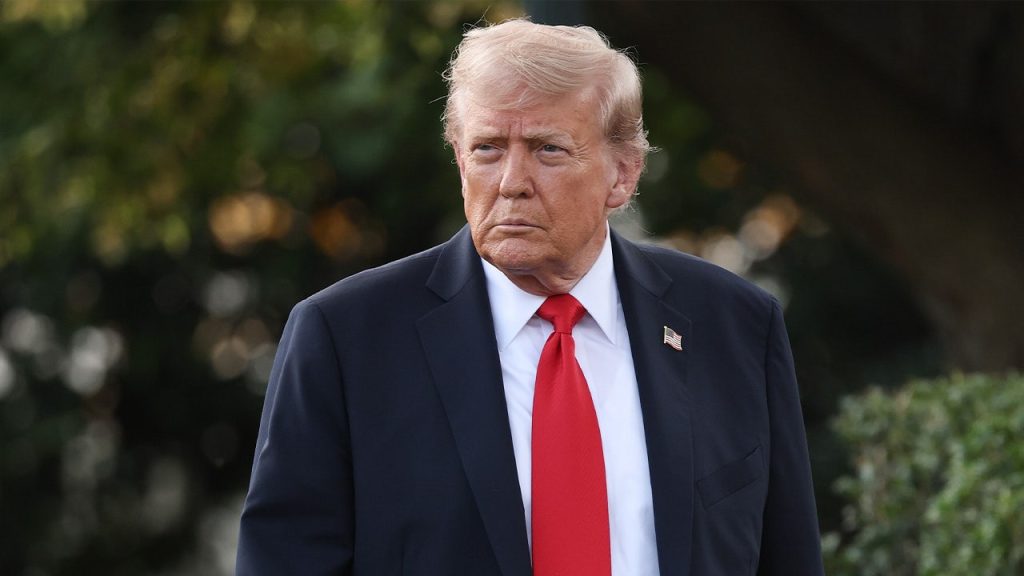Trump Administration Intensifies Pressure as Government Shutdown Continues
In a dramatic escalation of the ongoing government shutdown crisis, the Trump administration is considering withholding backpay for furloughed federal workers—a move that would overturn a 2019 law signed during Trump’s first term. As the shutdown enters its eighth day with no resolution in sight, the White House’s Office of Management and Budget (OMB) has drafted plans that would no longer guarantee compensation for workers currently sidelined by the funding lapse. This potential policy shift significantly raises the stakes for both parties, but particularly puts pressure on Democrats whom President Trump has publicly blamed for the impasse. The situation has created immediate hardship for thousands of government employees caught in the middle of this political standoff, with uncertainty about when—or if—they’ll receive their next paycheck.
When questioned about backpay for furloughed workers during a Tuesday meeting with Canadian Prime Minister Mark Carney, President Trump offered a notably ambiguous response, saying it “depends on who we’re talking about.” He elaborated with a concerning statement for many federal employees: “For the most part, we’re going to take care of our people. There are some people that really don’t deserve to be taken care of, and we’ll take care of them in a different way.” This rhetoric accompanies broader plans to potentially shrink the federal workforce permanently. The president told reporters that “a lot of those jobs will never come back,” signaling that the administration views the shutdown as an opportunity to implement more permanent downsizing of government agencies. The OMB had already instructed departments in September to prepare reduction-in-force plans in anticipation of a shutdown—a significant departure from traditional approaches where furloughed employees typically return to their positions once funding is restored.
The political finger-pointing has intensified as the shutdown continues without resolution. President Trump characterized Democrats’ actions as “like a kamikaze attack” and claimed they “have nothing to lose,” drawing a controversial comparison to World War II Japanese suicide missions. Republicans maintain that Democrats are blocking government funding to provide healthcare to undocumented immigrants—specifically referencing a provision that would repeal part of Trump’s “big, beautiful bill” that limited Medicaid eligibility for non-citizens. Democrats strongly contest this characterization, arguing their primary concern is preserving Affordable Care Act subsidies scheduled to expire at year’s end. Senate Minority Leader Chuck Schumer accused Republicans of failing to take the shutdown seriously, stating they are “refusing to address the healthcare crisis they created” and urged that “it’s past time to get it done.”
The shutdown began on October 1st following a stalemate between Senate Republicans and Democrats over a short-term funding bill that would have kept the government operational through November 21st. While the House had previously passed a temporary spending measure in September, the Senate vote fell short of the required 60-vote threshold despite three Democrats joining Republicans in support of the measure. The impasse has left multiple federal departments partially closed, with essential employees working without immediate pay and non-essential staff furloughed entirely. This partial shutdown affects numerous government services, from national parks to certain regulatory functions, while creating mounting uncertainty for government contractors and businesses dependent on federal operations.
White House spokesperson Abigail Jackson emphasized in a Wednesday statement that “every shutdown comes with consequences” and that Democrats “simply” needed to vote to reopen the government. “Whether it’s our brave military members working without pay, business owners missing out on previously promised contract work, or families dealing with flight delays, everyone is paying the price for the Democrats’ radical demands,” Jackson stated. The comment underscores the administration’s strategy of placing responsibility for the shutdown’s impacts squarely on Democratic lawmakers, even as critics point to the Republican control of both the House and Senate as evidence of their ability to advance funding legislation without Democratic support if they chose to compromise on certain provisions.
As the Senate prepares for another vote on a temporary spending bill Wednesday, the human toll of the shutdown continues to mount. Federal workers face growing financial uncertainty, with many living paycheck to paycheck now wondering if they’ll receive compensation even after the government eventually reopens. The situation creates particular hardship coming into the holiday season, with employees forced to consider difficult financial decisions regarding their housing payments, childcare expenses, and other essential costs. Beyond the immediate impact on government employees, the shutdown ripples throughout the broader economy, affecting government contractors, businesses near federal installations, and services relied upon by millions of Americans. Without a clear path to resolution, the situation threatens to extend further, potentially becoming one of the longer shutdowns in recent American history and deepening the political divide that already characterizes Washington.














